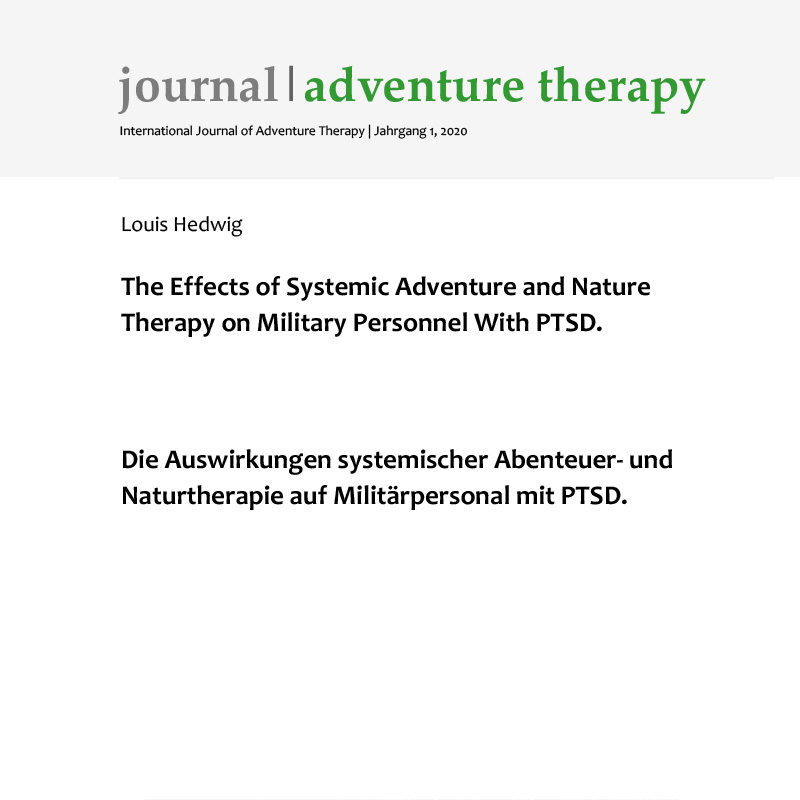Author: Louis Hedwig
Posttraumatic stress disorder (PTSD) in military personnel is a complex disease with far reaching individual, societal and economic consequences. Although first line treatments, such as eye movement desensitization and reprocessing therapy (EMDR), imagery rescripting and reprocessing therapy (IRRT), prolonged exposure (PE), and cognitive-behavioral therapy (CBT) consider the suggestions of recent PTSD theories (emotional processing theory, dual representation theory, cognitive model) some patients remain with significant residual symptomatology. The reason may be treatment barriers and challenges that are associated with military personnel PTSD. Therefore, additional treatment approaches are required to improve military personnel PTSD recovery. Systemic adventure and nature therapy (SANT) was investigated in this study as such a complementary treatment approach. Participants (N = 2) were military personnel with PTSD who received an online SANT intervention. Their PTSD symptoms before and after the intervention were compared. Moreover, this experimental group was compared to the treatment as usual (TAU) control group of Beetz, Schöfmann, Girgensohn, Braas and Ernst (2019), consisting of military personnel with PTSD (N =31). It was hypothesized that participants in the experimental group would have less PTSD symptoms after treatment compared to participants in the control condition (H1) and a PTSD symptom pre-test (H2). Results showed that participants‘ PTSD symptoms did not improve after the additional SANT intervention. However, the SANT experimental group had decreased PTSD symptoms compared to the TAU control group, indicating that SANT may be an effective addition to TAU. Results have to be interpreted under consideration of four limitations that occurred due to the COVID-19 pandemic.
